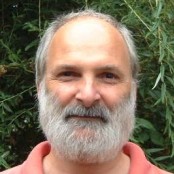Tim McEwen

Tim McEwen
Key Associate
Dr. Tim McEwen has degrees in geology (Leeds) and structural geology (Imperial College), a PhD in geology (Leeds) and is a Chartered Geologist and works as McEwen Consulting. He has more than 25 years’ experience in radioactive waste disposal, much of this associated with the selection and the characterisation of potential disposal sites in a large number of countries (e.g., the UK, Finland, Sweden, Spain, Switzerland, Italy, Japan, South Korea, Slovenia, Croatia, Bulgaria, and Russia) for both waste disposal organisations and for regulatory bodies. Throughout a large part of the 1980s, when he worked for the British Geological Survey, he was extensively involved in work for Nirex, on the selection and characterisation of sites for both the shallow disposal of LLW and the deep disposal of I/LLW.
His work is not confined to site selection and characterisation, and he has carried out work in many of the geoscientific areas associated with radioactive waste disposal and with repository performance/safety issues. He has written many reports on the potential suitability of geological environments for the disposal of both long-lived and short-lived radioactive waste for organisations in the UK, Japan, Spain, Italy, Bulgaria, Slovenia, Russia and South Korea.
He has been involved with international organisations, such as the NAE, IAEA and NATO, in providing advice on the selection and characterisation of radioactive waste disposal sites in Bulgaria, Slovenia, Croatia and Russia, and in preparing reports for the NEA and IAEA on a variety of subjects.
He has been associated with the development of many performance assessments, supplying information on the effects of natural processes on the long-term safety of disposal facilities, in particular on geological events and processes, such as seismicity, uplift and erosion, and climate change. He has also been involved in the review of assessments, such as Kristallin-1, WIPP and SAFIR-2. He has also taken part in programmes to assess different waste management options, most recently for NUMO.
He was a major contributor to a book on The Scientific and Regulatory Basis for the Geological Disposal of Radioactive Waste and has also contributed to The Deep Geological Disposal of Radioactive Waste and Volcanism, Tectonism and Siting of Nuclear Facilities Over the last few years he has had a major involvement with Posiva, with their investigations at Olkiluoto and the other sites investigated in detail in Finland, with their monitoring programme at Olkiluoto, with the development of a rock mass classification system for use in the ONKALO and the repository, with Posiva’s future programme of work in the ONKALO and elsewhere and, most recently, with the first and second Site Reports for Olkiluoto on the integration of the various modelling programmes. He is secretary of INAGO, Posiva’s international review group for the investigations at Olkiluoto. He has also been extensively involved in advising on the definition of preliminary site investigation programmes for NUMO in Japan.
